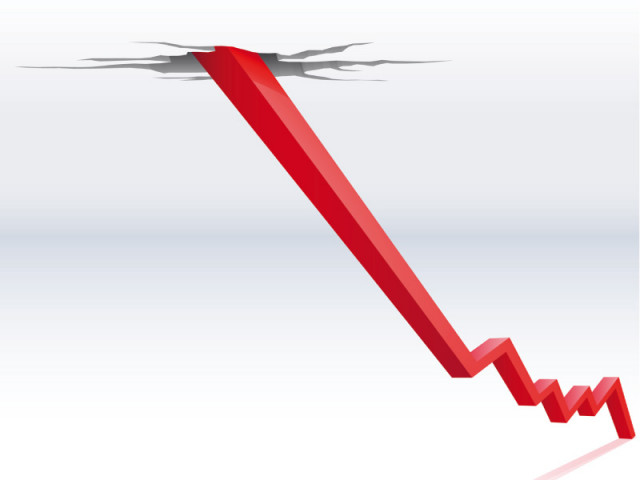Gas supplies: Fearing public anger, govt delays decision on price hike
Petroleum ministry’s policy guidelines will push up tariff by Rs35 per mmbtu

Apparently perturbed by the call of a long march by the Pakistan Tehreek-e-Insaf (PTI) and Pakistan Awami Tehreek (PAT), the government could not take a decision on whether to issue policy guidelines to the energy regulator for passing the burden of disputed Rs49 billion on to gas consumers.
It fears that if the consumers are further burdened, it will spark an angry response from them because of an increase in gas prices, officials say.
The policy guidelines, proposed by the Ministry of Petroleum and Natural Resources to bail out gas distributing companies, will push up gas prices by Rs35 per million British thermal units (mmbtu).
Government officials are of the view that Imran Khan’s PTI and Tahirul Qadri’s PAT may exploit the increase in gas prices to the advantage of their protest movement to topple the government.
The PML-N administration is already facing scathing criticism because of hours-long power outages, which sometimes extend up to 15 hours, across the country. Even the Pakistan Peoples Party (PPP), the main opposition which has formed its government in Sindh, has issued a warning, pressing the central government to address the load-shedding issue within a month.
The National Accountability Bureau (NAB) has put the government in trouble by suggesting that the Oil and Gas Regulatory Authority (Ogra) should recover the impact of increase in the unaccounted-for-gas (UFG) ceiling amounting to Rs49 billion from the two gas utilities.
“If this is recovered from the utilities – Sui Northern Gas Pipelines Limited (SNGPL) and Sui Southern Gas Company (SSGC) – they will go bankrupt immediately and gas supply may come to a halt,” said an official of the petroleum ministry while talking to The Express Tribune.
Sources pointed out that gas prices had already risen following increase in gas infrastructure development cess (GIDC) and the shifting of Rs49-billion burden to consumers would lead to further rise in tariff.
The Economic Coordination Committee (ECC), in its meeting held last month, put off the plan to shift the Rs49-billion burden to the consumers and directed the petroleum ministry to review it in the light of legal opinion in a way that it did not affect court proceedings or investigations into the Ogra scam.
According to officials, legal expert Abid Hassan Minto, while giving his detailed opinion, suggested that the proposed policy guidelines would in no way impede investigations by NAB following the Supreme Court’s decision in this connection.
The petroleum ministry has sent its summary again to the ECC, seeking issuance of the policy guidelines to Ogra.
The ministry has proposed that the following should be provisionally allowed as gas sales volumes for UFG benchmarking. (i) Volume pilfered by unregistered consumers but detected and determined by the companies (ii) volume against the minimum bill charged from domestic consumers (iii) volume consumed in law and order-stricken areas and (iv) impact of change in the bulk-retail ratio on UFG using 2003-04 as the base year.
“However, the real issue is the current political situation in the wake of the protest call given by PTI leader Imran Khan and PAT chief Tahirul Qadri, forcing the government to delay the decision,” an official said.
Published in The Express Tribune, August 6th, 2014.
Like Business on Facebook, follow @TribuneBiz on Twitter to stay informed and join in the conversation.


















COMMENTS
Comments are moderated and generally will be posted if they are on-topic and not abusive.
For more information, please see our Comments FAQ